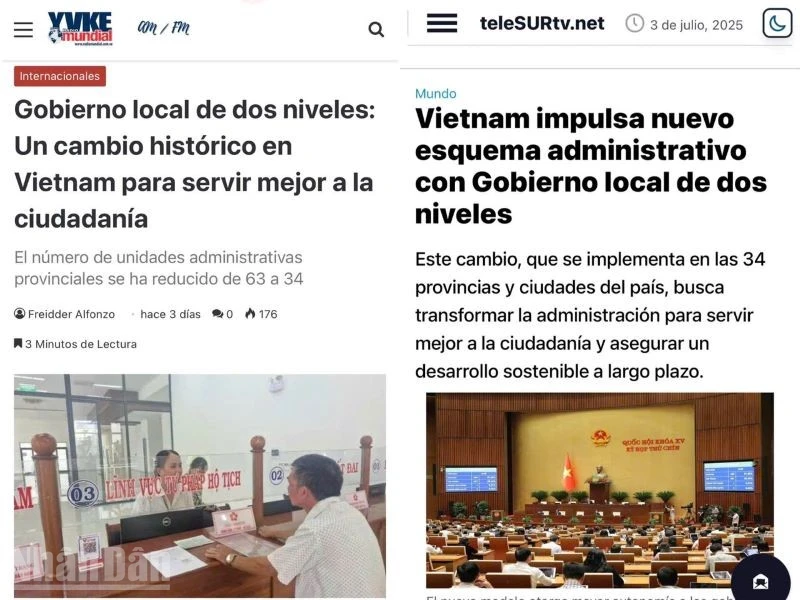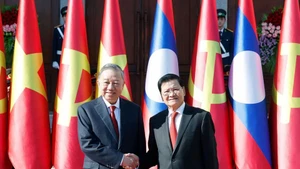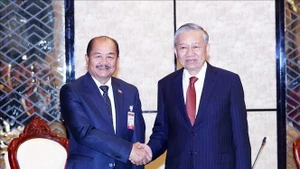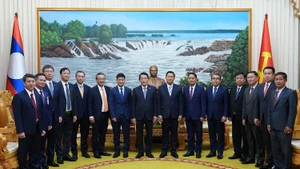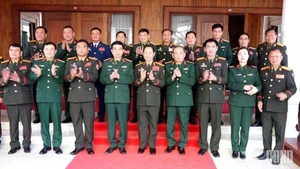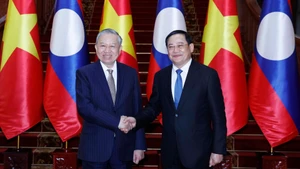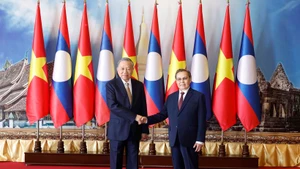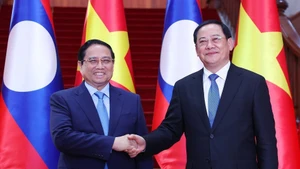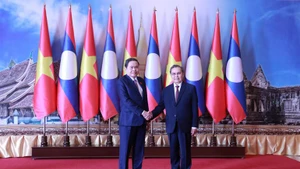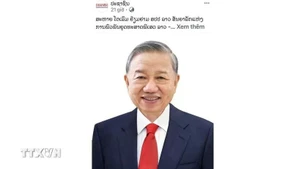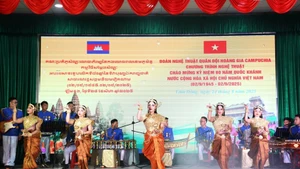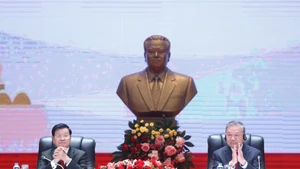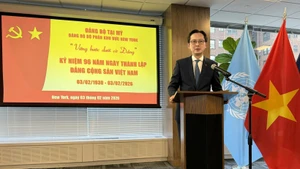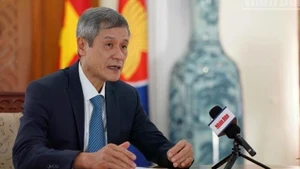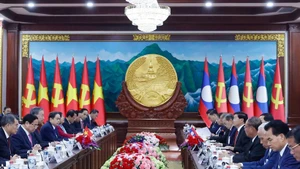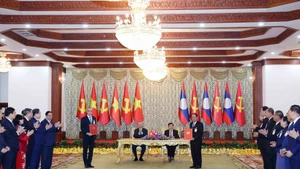A historic and timely decision in line with current development needs
For all staff members at the Consulate General of Viet Nam in San Francisco (the US), June 30 marked a truly special occasion as a day that signified a revolutionary milestone in the nation’s institutional and administrative reform efforts.
At the consulate’s headquarters, officials and staff gathered to watch the live broadcast from Viet Nam Television, attentively following every moment of the ceremony announcing major decisions made by the central and local governments. The event was met with a deep sense of pride and confidence in the strategic policies of the Party and the state.
Speaking to Nhan Dan Newspaper, Hoang Anh Tuan, Vietnamese Consul General in San Francisco, noted that while he has witnessed many historic milestones in Viet Nam’s journey, no administrative reform initiative has ever been as comprehensive, decisive, and synchronised as this one.
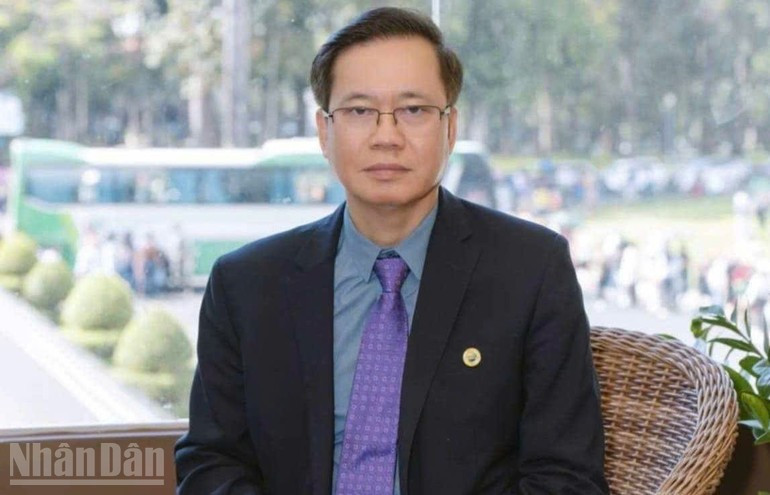
This is not merely a restructuring of the administrative apparatus, but a bold affirmation of the Party and State’s strategic vision, developmental aspirations, and strong spirit of innovation. In this spirit, the Vietnamese Consulate General in San Francisco is committed to further enhancing its communication and outreach efforts and strengthening connections with the overseas Vietnamese community such that compatriots abroad can continue to look toward their homeland and join hands in building a strong and modern Viet Nam which is capable of standing shoulder to shoulder with the great powers of the world.
For Vietnamese Ambassador to Pakistan Pham Anh Tuan, the policy of merging provinces and cities and streamlining local administrative structures to enhance efficiency and effectiveness is a historic and necessary decision that aligns perfectly with the current needs of national development.
Describing the reform as a highly practical and significant step in ushering Viet Nam into an era of prosperity and development, Ambassador Pham Anh Tuan emphasised that the restructuring of local governance under a two-tier administrative model represents a bold and necessary move. This approach aims to enhance the effectiveness, efficiency, and performance of government’s operations at all levels. According to the ambassador, this reform will help build a government that is closer to the people, better understands their needs, and serves them more effectively. At the same time, it creates broader space for the country’s sustainable development.
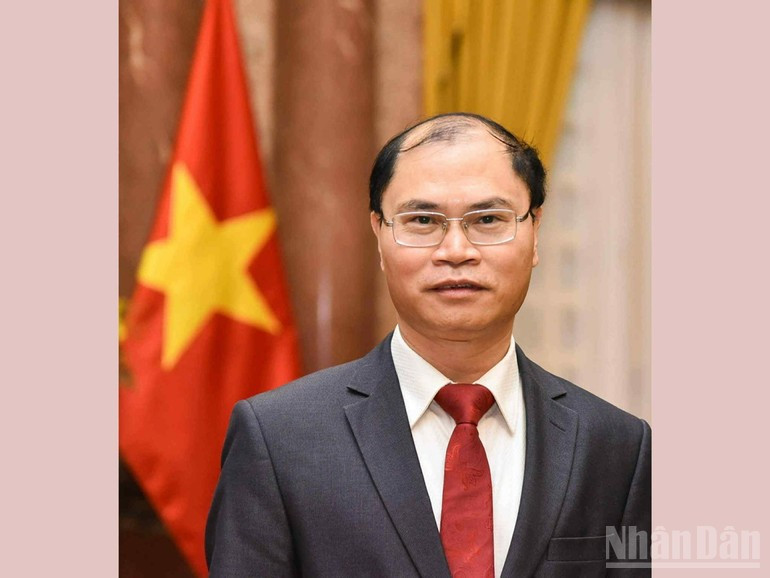
Ambassador Pham Anh Tuan stated that the Vietnamese Embassy in Pakistan will thoroughly study and internalise the guiding principles outlined in the speech delivered by Party General Secretary To Lam at the June 30 ceremony. The speech announced the resolutions and decisions by the Party Central Committee and local governments regarding the merger of provincial and commune-level administrative units, the establishment of Party organisations, the appointment of Party committees, people's councils, people’s committees, and branches of the Viet Nam Fatherland Front at the provincial, municipal, and grassroots levels.
The embassy will also implement concrete initiatives aimed at advancing a streamlined, modern administrative system that better serves the Vietnamese community in Pakistan. These efforts will contribute to promoting the image of a renewed, modern, and globally integrated Viet Nam to the diplomatic corps and local stakeholders in Pakistan.
Viet Nam’s institutional reform not only is of internal significance but also offers valuable insights on global scale
Praising Viet Nam’s bold political and administrative restructuring, Vietnamese Ambassador to Venezuela Vu Trung My described the reform as a decisive move — one that brings about historic, transformative change to serve the country’s aspirations for a prosperous, strong, and happy future.
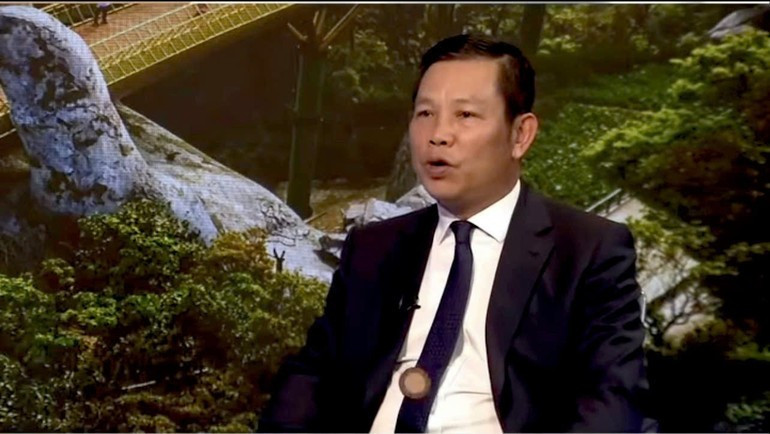
According to Ambassador Vu Trung My, the streamlining of the political system aligns not only with global trends but also with Viet Nam’s evolving conditions and new development context. It meets the demands of an era increasingly shaped by scientific and technological progress, including artificial intelligence, and sets the stage for Viet Nam to rise even more vigorously in the coming period.
This reform, by cutting unnecessary structures and reallocating functions, will enable the state apparatus to operate with greater efficiency and effectiveness.
According to Vietnamese Ambassador to Venezuela Vu Trung My, streamlining the state apparatus is consistent with global trends and Viet Nam’s current context. It meets the demands of a new development phase shaped by advances in science, technology, and artificial intelligence, enabling Viet Nam to rise more robustly in the years ahead. The reform, which involves eliminating redundant structures and reallocating functions, is expected to improve the efficiency and effectiveness of state machinery.
“The two-tier local government model is widely adopted in many countries around the world, including the majority of Latin American nations,” Ambassador Vu Trung My explained. “However, depending on administrative traditions, political systems, and development conditions, each country organises its two-tier system differently. Still, the shared goal remains to enhance the strength and efficiency of local governance.”
Affirming that the streamlining of local administrations and the merging of provinces and cities is appropriate for Viet Nam’s current situation, Ambassador Vu Trung My also acknowledged that the country may face organisational challenges during implementation. Following the downsizing of ministries, departments, and agencies, it is crucial to clearly define their functions and responsibilities in a scientific manner, ensuring that no duties are overlooked or duplicated. Therefore, Viet Nam’s leadership must carefully outline a clear roadmap and ensure unified coordination across all levels and sectors to guarantee the reform’s success.
Ambassador Vu Trung My expressed his strong belief that, under the resolute leadership of the Party, headed by General Secretary To Lam, and drawing on Viet Nam’s longstanding tradition of unity, its spirit of innovation, and its commitment to the common good, the country will successfully implement this policy. The reform will contribute significantly to building a more prosperous, modern, and civilised nation.
Ambassador Vu Trung My emphasised that, as a member of the diplomatic service, deeply aware of his role and responsibility in building a comprehensive and modern diplomacy to serve the nation’s era of rise, every Vietnamese diplomat must strive to maximise their contribution. Diplomats play a vital role in fulfilling the mission of the foreign affairs sector; maintaining peace and stability; creating and reinforcing a favourable external environment, and positioning Viet Nam firmly within the current global context. He stressed that diplomatic officers must draw upon past experiences and lessons to help elevate the country to new heights, enabling Viet Nam to stand shoulder to shoulder with the world’s major powers, as envisioned by President Ho Chi Minh.
Commenting on international media interest, Ambassador Vu Trung My noted that Latin American media, including major outlets in Venezuela, extensively covered Viet Nam’s historic institutional reform on July 1. The reports highlighted the country’s significant step in overhauling its administrative system by officially implementing the two-tier local government model and reorganising administrative boundaries toward a leaner, more efficient, and more effective structure.
Notably, RadioMundial, the voice of the Venezuelan government and people, published an article titled “Two-Tier Local Government: A Historic Turning Point for the People’s Benefit.” The article emphasised that this model aims to restructure the administrative apparatus in a more streamlined, scientific, and efficient manner. By eliminating intermediate levels, the reform seeks to reduce bureaucracy and bring the government closer to the people, ultimately enhancing the quality of public service delivery.
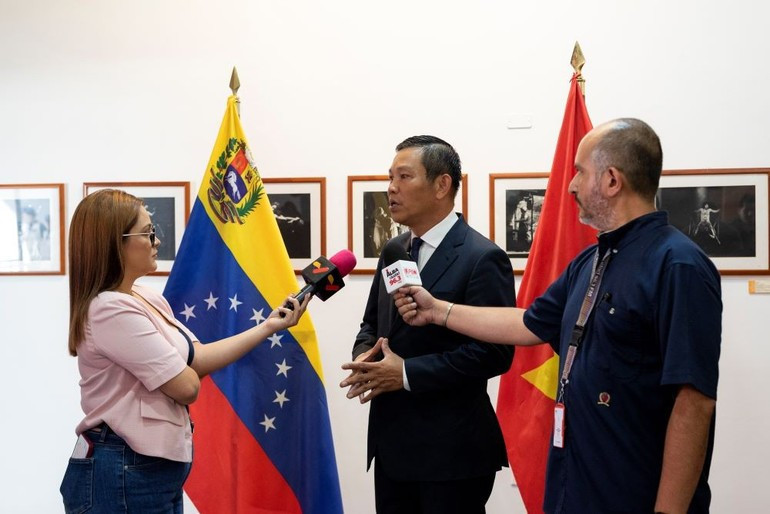
According to Latin American and Venezuelan media, Viet Nam’s reorganisation of the nation is expected to open up new development opportunities for localities, spur investment, upgrade infrastructure, ensure social welfare, and strengthen regional connectivity. These reforms reflect Viet Nam’s steady progress in establishing a modern and rule-of-law state that is proactive, enabling, and service-oriented.
Ambassador Vu Trung My noted that the close attention and positive assessments from Latin American media regarding Viet Nam’s reforms demonstrate that the country’s institutional overhaul carries not only domestic significance but also global relevance as a model worth studying.
